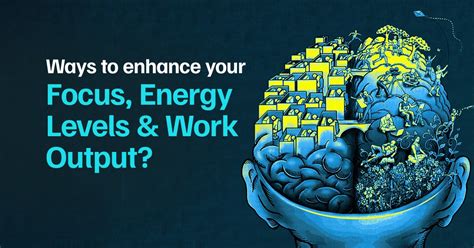The first meal of the day sets the tone for your physical and mental performance. In the demanding environment of modern work, maintaining sustained focus and energy isn’t just a luxury; it’s a necessity. How you fuel your body in the morning directly impacts your cognitive function, mood, and overall productivity throughout the day.
The Science of Sustained Energy and Focus
Your brain is a hungry organ, primarily running on glucose. However, the type of glucose matters immensely. A breakfast high in simple sugars (like sugary cereals or pastries) leads to a rapid spike in blood sugar, followed by an inevitable crash, leaving you feeling sluggish, irritable, and unable to concentrate. The key to sustained energy and sharp focus lies in stabilizing blood sugar levels, providing a steady supply of glucose to your brain and muscles.

Key Components of an Optimal Morning Meal
Crafting a breakfast that truly fuels you for success involves a balance of macronutrients. Aim for a combination of complex carbohydrates, lean proteins, healthy fats, and fiber.
Complex Carbohydrates for Lasting Fuel
Unlike simple sugars, complex carbohydrates are digested slowly, releasing glucose gradually into your bloodstream. This provides a steady energy supply, preventing the dreaded mid-morning slump. Good sources include whole-grain oats, quinoa, whole-wheat bread, brown rice, and starchy vegetables like sweet potatoes.
Lean Proteins for Satiety and Brain Power
Protein is crucial for feeling full and satisfied, reducing cravings, and supporting cognitive function. It also helps stabilize blood sugar. Incorporate eggs, Greek yogurt, cottage cheese, lean turkey or chicken, tofu, lentils, or a scoop of protein powder into your morning routine.
Healthy Fats for Brain Health and Absorption
Don’t fear fats – healthy fats are essential! They contribute to satiety, support brain health (the brain is nearly 60% fat), and help with the absorption of fat-soluble vitamins. Avocados, nuts (almonds, walnuts), seeds (chia, flax, hemp), and a drizzle of olive oil are excellent additions.

Practical Strategies for Busy Mornings
Time is often a constraint, but a nutritious breakfast doesn’t have to be complicated or time-consuming. Planning ahead can make all the difference.
- Overnight Oats: Prepare oats with milk/water, chia seeds, and fruit the night before for a grab-and-go option.
- Egg Muffins: Bake a batch of egg muffins with vegetables on Sunday for quick reheating throughout the week.
- Smoothies: Blend fruits, vegetables, protein powder, and healthy fats (like avocado or nut butter) for a nutrient-dense drink.
- Prepped Ingredients: Wash and chop fruits and vegetables in advance, or portion out nuts and seeds.
- Hydration: Don’t forget water! Start your day with a glass of water, and continue to hydrate throughout the morning. Sometimes, what feels like hunger is actually thirst.

What to Avoid for Peak Performance
Just as important as what you eat is what you avoid. Steer clear of breakfast foods that offer a quick burst of energy followed by a crash:
- Sugary Cereals: Often high in refined carbs and sugar, leading to blood sugar rollercoaster.
- Pastries and Doughnuts: Similar to sugary cereals, these offer minimal nutritional value and cause energy dips.
- Sugary Juices and Energy Drinks: While they might seem like a quick fix, the high sugar content will often lead to a subsequent energy slump.
- Skipping Breakfast: This can lead to decreased cognitive function, overeating later in the day, and a general lack of energy.

Fueling Your Day, One Morning at a Time
Optimizing your morning fuel is a powerful strategy for enhancing your workday performance. By choosing balanced meals rich in complex carbohydrates, lean proteins, and healthy fats, you’re not just feeding your body; you’re nourishing your brain, stabilizing your mood, and setting yourself up for sustained focus and energy. Make your morning meal an intentional step towards a more productive and energetic day.





